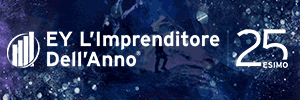Chugai Pharmaceutical Co., Ltd. (TOKYO: 4519) announced that the U.S. Food and Drug Administration (FDA) has granted Breakthrough Therapy Designation for Chugai’s anti-interleukin-6 (IL-6) receptor humanized recycling antibody satralizumab, an investigational medicine for neuromyelitis optica and neuromyelitis optica spectrum disorders (NMO/NMOSD).
“Satralizumab is a recycling antibody created utilizing Chugai’s proprietary antibody engineering technologies. We are delighted by the FDA’s designation for this innovative antibody based on the results of a Chugai-initiated global Phase III study” said Chugai’s Executive Vice President, Co-Head of Project & Lifecycle Management Unit, Dr. Yasushi Ito. “Satralizumab is designed to inhibit signaling of the inflammatory cytokine IL-6, which is known to play a role in the pathogenesis of NMO/NMOSD. We continue our efforts to hopefully bring satralizumab as a new treatment option as soon as possible to people living with this devastating disease with no approved drugs.”
The designation for satralizumab is based on data from the Phase III study (SAkuraSky study, NCT02028884) evaluating satralizumab added to baseline therapy. This is the seventh Breakthrough Therapy Designation received for four drugs created by Chugai.
[Reference]
Press release issued on October 15, 2018
Chugai
Presents Results from Phase III Study of Satralizumab in NMOSD at
ECTRIMS 2018
https://www.chugai-pharm.co.jp/english/news/detail/20181015120001_561.html
About Breakthrough Therapy
Breakthrough Therapy Designation was adopted as part of the FDA Safety and Innovation Act (FDASIA) enacted in July 2012 aiming at expediting the development and review of drugs for the treatment of severe or life-threatening diseases or symptoms. In order to grant Breakthrough Therapy Designation, preliminary clinical evidence is required demonstrating that the drug may have substantial improvement on at least one clinically significant endpoint over existing therapies. Breakthrough Therapy Designation includes the features of a Fast Track designation, with the addition of intensive guidance on efficient drug development as well as organizational commitment from FDA.
About Neuromyelitis Optica and Neuromyelitis Optica Spectrum Disorder (NMOSD)
Neuromyelitis optica spectrum disorder (NMOSD) is a rare, lifelong, and debilitating autoimmune disease of the central nervous system (CNS) characterized by inflammatory lesions in the optic nerves and spinal cord. Patients with NMOSD frequently experience a relapsing disease course with repeated attacks leading to accumulating neurological damage and disability. Symptoms may include visual impairment, motor disability, and loss of quality of life. In some cases, attacks of NMOSD result in death.
NMOSD pathogenesis is thought to involve AQP4-IgG autoantibody entry into the CNS, however approximately one-third of patients with NMOSD are AQP4-IgG seronegative1)-4). The inflammatory cytokine IL-6 is now emerging as an important factor in NMOSD pathogenesis.
Diagnostic criteria introduced in 2006 for neuromyelitis optica were characterized by inflammation of the optic nerve (optic neuritis) and the spinal cord (myelitis). These were revised in 2007 with the definition of NMOSD, proposed for diseases with either optic neuritis or myelitis. In 2015, the definition of NMOSD was further revised to include a broader spectrum of disease. The diagnostic term NMOSD is now widely used5).
About Chugai
Chugai Pharmaceutical is one of Japan’s leading research-based
pharmaceutical companies with strengths in biotechnology products.
Chugai, based in Tokyo, specializes in prescription pharmaceuticals and
is listed on the 1st section of the Tokyo Stock Exchange. As an
important member of the Roche Group, Chugai is actively involved in R&D
activities in Japan and abroad. Specifically, Chugai is working to
develop innovative products which may satisfy the unmet medical needs,
mainly focusing on the oncology area.
In Japan, Chugai’s research
facilities in Gotemba and Kamakura are collaborating to develop new
pharmaceuticals and laboratories in Ukima are conducting research for
technology development for industrial production. Overseas, Chugai
Pharmabody Research based in Singapore is engaged in research
focusing on the generation of novel antibody drugs by utilizing Chugai’s
proprietary innovative antibody engineering technologies. Chugai
Pharma USA and Chugai Pharma Europe are engaged in clinical
development activities in the United States and Europe.
The
consolidated revenue in 2017 of Chugai totalled 534.2 billion yen and
the operating income was 103.2 billion yen (IFRS Core basis).
Additional
information is available on the internet at https://www.chugai-pharm.co.jp/english.
| References | ||
| 1. | Jarius S, Ruprecht K, Wildemann B et al. Contrasting disease patterns in seropositive and seronegative neuromyelitis optica: A multicentre study of 175 patients. J Neuroinflammation 2012;9:14. | |
| 2. | Lennon VA, Wingerchuk DM, Kryzer TJ et al. A serum autoantibody marker of neuromyelitis optica: distinction from multiple sclerosis. Lancet 2004;364:2106-12. | |
| 3. | Marignier R, Bernard-Valnet R, Giraudon P et al. Aquaporin-4 antibody-negative neuromyelitis optica: Distinct assay sensitivity-dependent entity. Neurology 2013;80:2194-200. | |
| 4. | Takahashi T, Fujihara K, Nakashima I et al. Anti-aquaporin-4 antibody is involved in the pathogenesis of NMO: a study on antibody titre. Brain 2007;130:1235-43. | |
| 5. | Wingerchuk DM, Banwell B, Bennett JL et al. International consensus diagnostic criteria for neuromyelitis optica spectrum disorders. Neurology 2015;85:177-89. | |
View source version on businesswire.com: https://www.businesswire.com/news/home/20181219005229/en/
For Media
Chugai Pharmaceutical Co.,
Ltd.
Media Relations Group, Corporate Communications Dept.,
Tomoko
Shimizu
Tel: +81-3-3273-0881
E-mail: pr@chugai-pharm.co.jp
For US media
Chugai Pharma USA Inc.
Casey
Astringer
Tel: +1-908-516-1350
E-mail: pr@chugai-pharm.com
For European media
Chugai Pharma
France SAS
Nathalie Leroy
Tel: +33-1-56-37-05-21
E-mail: pr@chugai.eu
For Taiwanese media
Chugai Pharma
Taiwan Ltd.
Susan Chou
Tel: +886-2-2715-2000
E-mail: pr@chugai.com.tw
For Investors
Chugai Pharmaceutical
Co., Ltd.
Investor Relations Group, Corporate Communications Dept.,
Toshiya
Sasai
Tel: +81-3-3273-0554
E-mail: ir@chugai-pharm.co.jp
Permalink: http://www.businesswire.com/news/home/20181219005229/en








